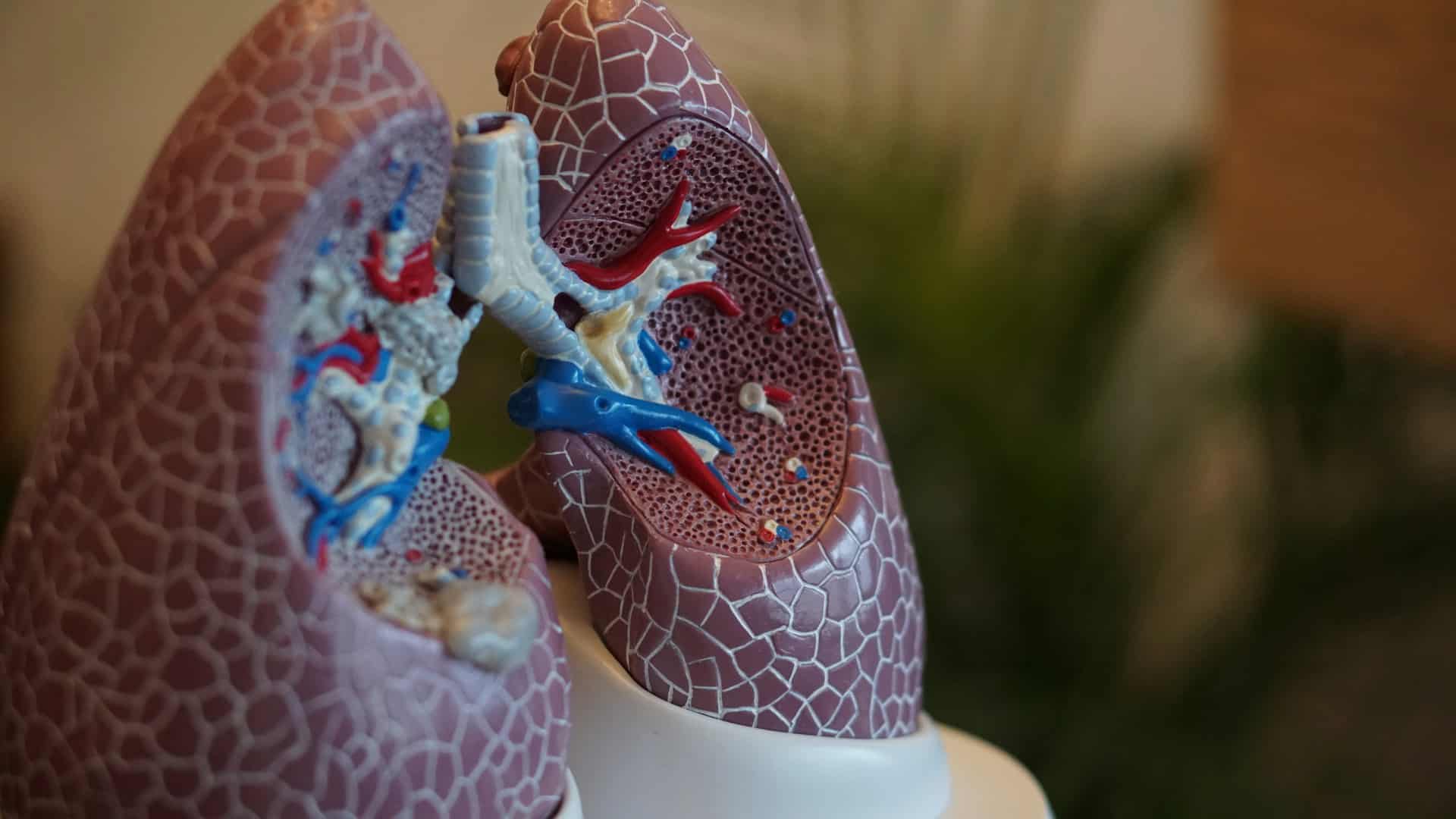Your lungs play a vital role in your overall health. Every time you breathe in, your lungs oxygenate your blood before it’s pumped around your body. Keeping your lungs healthy is essential for maintaining your general well-being. But what can you do to naturally improve your lung health? In this article, we offer insights on what healthy habits you can adopt and practices you can embrace to support your lung health.
The Importance of Lung Health
Our lungs are constantly working, even while we sleep. They take in oxygen from the air we breathe and expel carbon dioxide, a waste product of the body’s metabolic processes. Proper lung function ensures that every cell in our bodies gets the oxygen it needs to function optimally.
A lire également : What are the health benefits of yoga for seniors?
However, our lungs are subject to various threats, including exposure to pollutants, secondhand smoke, and infectious diseases. Conditions like chronic obstructive pulmonary disease (COPD), lung cancer, and asthma can severely impair lung function, making it crucial to focus on preventative health measures.
Several factors, including lifestyle choices and our environment, significantly affect lung health. Fortunately, there are several ways to naturally improve lung health and capacity, and avoid or manage respiratory diseases.
Sujet a lire : What are the health implications of emerging food technologies like lab-grown meat and 3D printed food?
Breathing Exercises to Improve Lung Capacity
Breathing exercises can significantly help improve your lung capacity. They train your lungs to take in more oxygen per breath, strengthening your respiratory muscles and promoting better airflow.
One simple exercise is the “belly breathing” or diaphragmatic breathing. It involves inhaling deeply through the nose, letting your belly push your hand out, then exhaling slowly with pursed lips while tightening your abdominal muscles. This exercise not only improves lung capacity but also promotes relaxation.
Another is the “pursed lip breathing.” This exercise slows down your breathing rate and keeps your airways open longer, making it easier for the lungs to function. It involves breathing in slowly through the nose and breathing out slowly through pursed lips.
Regular practice of these exercises can contribute to maintaining healthy lungs and improving your overall respiratory health.
Adapting a Healthy Lifestyle
Adapting a healthier lifestyle can significantly improve lung health. Avoiding tobacco is one of the most effective ways to protect your lungs. Smoking damages the lung tissues and can lead to respiratory diseases such as COPD and lung cancer. Even exposure to secondhand smoke poses health risks. Therefore, it’s crucial to either quit smoking or avoid places where others are smoking.
Regular physical exercise is another way to keep your lungs healthy. When you exercise, your heart and lungs work harder to supply the extra oxygen your muscles need. This process helps strengthen your lungs and keep them more efficient.
Eating a balanced diet is also essential. Foods rich in antioxidants, like fruits and vegetables, can help protect your lungs from damage caused by pollutants and reduce the risk of lung disease.
Enhancing Your Living Environment
Your living environment can significantly impact your lung health. Indoor air can be polluted with dust mites, mold spores, pet dander, and secondhand smoke. These pollutants can irritate your lungs and lead to respiratory problems.
To keep your home’s air clean, use air purifiers, keep the home well-ventilated, and regularly clean to reduce dust. If necessary, use a dehumidifier to prevent mold growth. Avoid using chemical-based cleaners and air fresheners as they can irritate the lungs.
Outdoor air pollution can also affect lung health. If you live in a city with high pollution levels, it’s advisable to stay indoors during peak pollution times and wear a mask when necessary.
Regular Health Check-ups
Regular health check-ups are essential in maintaining lung health. Doctors can provide advice suited to your personal health and lifestyle needs, helping you keep your lungs in the best possible condition.
Regular screenings can help detect conditions such as lung cancer at an early stage, increasing the chances of successful treatment. Additionally, if you are experiencing persistent coughing, shortness of breath, or other respiratory symptoms, it’s important to seek medical attention immediately.
Remember, prevention is always better than cure. By implementing these natural ways to improve lung health, you’re setting yourself up for a healthier, more vibrant life. So, breathe easy and take good care of your lungs!
The Relationship Between Physical Activity and Lung Health
Physical activity can significantly enhance your lung health. When you engage in physical exercises, your lungs work harder to supply the additional oxygen your body demands. This process strengthens your lungs and enhances their efficiency, which in turn improves your lung capacity.
High-intensity activities such as jogging, swimming, or cycling are especially beneficial, as these activities put more demand on your lungs and heart, thereby strengthening them over time. However, any form of physical activity, including walking or even doing household chores, can contribute to better lung health.
It’s important to start slow, especially if you’re new to regular exercise. Gradually increase the intensity and duration of your workouts. Always ensure your workouts are medically reviewed and approved, especially if you have existing health conditions. If you experience shortness of breath or any other discomfort during exercise, consult your doctor immediately.
Aside from improving lung health, regular physical activity also offers myriad other health benefits, including improved cardiovascular health, stronger immune system, and better mental health. So, keep your body moving and your lungs working!
The Role of Air Quality in Maintaining Healthy Lungs
Air pollution, both indoors and outdoors, poses a significant threat to your lungs. Exposure to polluted air can lead to or exacerbate respiratory diseases such as asthma and lung cancer. This makes maintaining good air quality crucial for lung health.
Indoor air can be polluted with dust, secondhand smoke, pet dander, and mold spores. To improve indoor air quality, consider using air purifiers that can remove these harmful particles from the air. Regularly cleaning your home can also help reduce dust accumulation. Avoid using chemical-based cleaners as they can irritate your lungs. If your home has high humidity levels, use a dehumidifier to prevent mold growth.
Outdoor air pollution can also affect your lung health. If you live in an area with high levels of air pollution, try to stay indoors during peak pollution times and wear a mask when necessary.
Regularly monitor air quality levels in your area. Many apps and websites provide real-time air quality index (AQI) updates. If the AQI is high, minimize your outdoor activities, especially strenuous ones.
Conclusion
Maintaining and improving your lung health is a multifaceted process that involves adopting healthy lifestyle habits, performing regular breathing exercises, keeping your living environment clean, and staying on top of your health check-ups.
Remember, every step you take towards improving your lung health contributes to your overall well-being. Regular physical activity, a balanced diet, and a clean air environment are all crucial elements for keeping your lungs healthy. Moreover, staying diligent about your health screenings and immediately seeking medical attention when you experience respiratory symptoms can help detect and treat lung diseases in their early stages.
In the end, the health of your lungs is largely in your hands. Keep your focus on the things you can control, and don’t hesitate to seek professional help when needed. Remember, a breath of fresh air isn’t just a saying—it’s a vital part of a healthy life.






